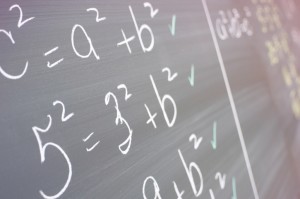Deliberate Practice: How Education Fails to Produce Expertise

Photo: iStockphoto
Thanks to recent, hugely popular books about the development of expertise, the term deliberate practice is coming into common usage as the kind of practice that produces expertise.
Deliberate practice requires careful reflection on what worked and what didn’t work. A budding concert pianist may practice a particularly troublesome passage listening for places where his fingers do not flow smoothly. A chess student may spend hours analyzing one move of a world-championship chess match trying to see what the grandmasters saw. This kind of practice demands time for reflection and intense concentration, so intense that it is difficult to sustain for longer than 3 hours per day.
As I have learned more about deliberate practice, I often think about its lessons for the educational system. And they are not happy ones.
In the grade-school years, deliberate practice is already hard to find. My strongest memory from fifth-grade mathematics is pages and pages of tedious three-digit-by-three-digit multiplication problems. Day after day! It is, alas, the kind of rote practice that I have done for chess: simply playing lots of games.
In a classic paper, “The Role of Deliberate Practice in Chess Expertise,” Neil Charness and colleagues studied the effect on chess rating of different types of chess practice, including total hours of serious study (i.e., deliberate practice) and total hours of tournament play (their Table 3). The effect of deliberate practice far outweighed the effect of tournament play. Not surprisingly, my chess skill today is only slightly higher than it was nearly 40 years ago when I learned to play chess.
In college, at least in science subjects, the situation is hardly better. As an undergraduate physics student, one often takes four or five science or mathematics courses per semester. Each course assigns a set of problems every week, each set taking about 6 to 8 hours. Thus, solving lots of physics problems is how one spends most weekday evenings, many sessions lasting late into the night; in my time the physics majors had keys to the physics library, where we would order pizza to fuel the weary problem-solving neurons, and I remember seeing many sunrises from the windows of the library.
Those problem-set hours total almost a whole other working week laid on top of the other academic tasks of attending lectures and reading notes. In college as in grade school, where is the time for deliberate practice?
[The notes were mostly a copy, with my own mistakes added, of what the professor wrote on the board, which was usually a copy of the textbook (with perhaps fewer mistakes added). The Gutenberg method of teaching, which takes account of the invention of the printing press, is little used.]
Is it any wonder that, just as I can play chess but have little insight into how the game works, science and engineering students graduate able to “work hard” but cannot solve problems expertly and creatively? What would an educational system look like that took seriously the principles of deliberate practice?

Comments